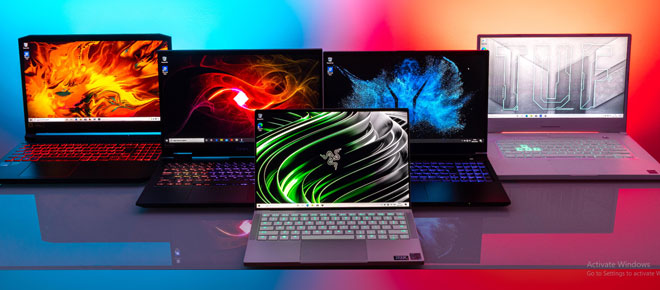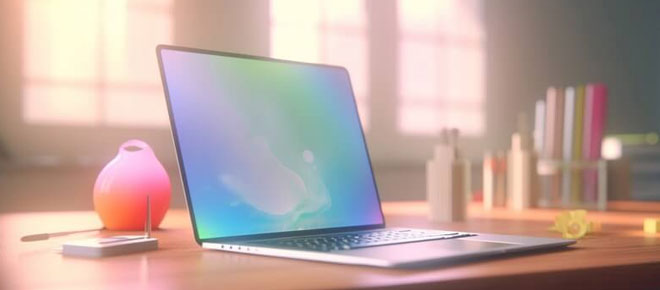Gaming Laptop Specs - Everything You Need to Know Before Buying

If you're in the market for a gaming laptop, there are a few key specs to keep in mind. First and foremost, you'll want a powerful graphics card, such as an NVIDIA GeForce or AMD Radeon. A fast processor, at least 8GB of RAM, and a solid state drive (SSD) for quick load times are also important. Look for a laptop with a high refresh rate display (at least 120Hz) and good cooling to prevent overheating. Don't forget to consider the keyboard and overall build quality as well.
CPU
Gaming laptops are designed to deliver speed and performance. The best ones come with a powerful central processing unit (CPU) and are paired with high-spec graphics processors. Together, they can offer the power needed to play triple-A games at high settings.
A CPU is responsible for the processing of commands and game logic, while a GPU handles image rendering. The more complex the graphics are in a game, the more demanding it is on a CPU. A good gaming laptop should have a fast processor and plenty of memory. This will ensure that all processes are running smoothly, without any bottlenecks and lag.
In addition to the hardware, a gaming laptop should have a decent display. It should have a minimum resolution of 1920 x 1080, but higher-end models will include a 4K (3840 x 2160) screen, which provides a much sharper image than standard HD screens. It’s also worth considering a screen with a high refresh rate, which can help to reduce motion blur and eliminate image tearing when playing games.
Other features to consider include support for high-dynamic range (HDR) colours and adaptive refresh technology, such as NVIDIA Gsync and AMD Freesync. While this isn’t essential, it can improve colour accuracy and brightness. Finally, it’s worth checking if the laptop has a touch screen, which can be useful for certain types of games.
GPU
If you’re a serious gamer, you’ll want to choose a gaming laptop with a powerful graphics card. This is essential for playing modern games at a high resolution and quality level. The GPU is one of the most expensive components in a gaming laptop, so make sure it has enough power to run your games. Look for a GPU that can support a 4K resolution, and opt for one with the highest GPU processor and RAM that you can afford.
You can check the GPU in your computer by opening Windows and clicking on the magnifying glass icon in the bottom-left corner of the screen. Then type device manager and click the arrow next to “Display adapters.” The name of the GPU will appear here.
There are two companies that produce GPUs for laptops: Nvidia and AMD. Currently, Nvidia’s RTX 30-series is the fastest available for gaming laptops. However, the company also offers RTX Max-Q versions that run at lower frequencies than their full-size counterparts to reduce heat and noise and fit into thinner designs.
A good gaming laptop will include a display that matches the capabilities of the GPU. For example, some laptops have a 240Hz panel that supports G-Sync or FreeSync to reduce the annoying artifact known as screen tearing.
Another thing to consider is how long the battery will last on a gaming laptop. Most gaming laptops require a lot of power, which can drain the battery quickly. The best gaming laptops will have a battery that can last an hour or more while running a game.
RAM
Gaming laptops need to process multiple tasks simultaneously and handle demanding games. That’s why RAM is important, as it provides the speed necessary to perform those tasks. When shopping for a gaming laptop, look for RAM that operates at 2,400MHz or higher. Higher speeds mean fewer latency delays between command processing and execution.
The CPU is another important component to consider, as it handles computationally-intensive processes like rendering graphics and loading game data. Look for a laptop with a new generation Intel processor, especially one that supports overclocking. For example, the unlocked Core i9 series is great for those who want to boost performance.
For the best performance, you should also consider how much storage space you need for your games. Generally, you’ll want at least 1TB of SSD storage, as this will provide your computer with significantly faster load times than HDDs. Some laptops also feature slots for two SSD drives, allowing you to split your games between them and free up space as needed.
A final key point is the GPU, which renders game images for display on the screen. It’s essential to get the highest-quality GPU you can afford, as this will ensure the best gaming experience. The top brands include NVIDIA and AMD, and you can choose from a variety of options depending on your budget and gaming needs.
If you are looking for a laptop that can handle the latest games with high performance and quality, you might want to check out the Lenovo gaming laptops that offer a range of options for different budgets and preferences. The NVIDIA GeForce RTX 2080 Super 8GB card is the most powerful that’s available on a laptop, and it can help you play at 4K resolution and enable ray tracing. However, such a high-end model will cost you thousands of dollars. On the other hand, you can find a more reasonable laptop that has a decent NVIDIA RTX 2070 card and still plays most modern titles at a high-setting. Lenovo Coupons Australia is a website that offers discounts and coupons on various Lenovo products and services, including laptops, desktops, tablets, and more. You can find the best deals and offers on their website, where you can also compare the features and prices of different models.
Storage
If a laptop's processor is the brain, its storage is its heart. The more space you have, the more games you can install and play. A gaming laptop with a fast, large hard drive will have more than enough room for all of your favorite titles. Some models are also compatible with external hard drives for even more space.
As for the type of storage, you'll want a solid-state drive (SSD) or hard disk drive with at least 1TB. Modern AAA games are getting bigger and take up more and more space, so you'll need ample storage to avoid running out of room.
Another important feature to consider when shopping for a gaming laptop is the screen. The right one will give you a better experience playing your games, especially if it has a high refresh rate. This is how many times per second the screen can display a new image, and it's measured in hertz (Hz).
A higher refresh rate means smoother gameplay because it reduces screen tearing and stuttering. It's also worth looking out for options like HDR, which improves contrast and color accuracy.
Unlike desktop computers, gaming laptops are designed to be portable. However, they can't offer the same level of performance as a powerful desktop PC. For a gaming laptop to truly excel, it should have a high-end CPU, GPU and plenty of RAM. It should also be able to handle 4K resolution and VR. Lastly, look for a gaming laptop that supports G-Sync and Freesync technology, which alleviate screen tearing by matching the framerate of your graphics card to the framerate of your screen. This way, your games will run smoothly no matter which screen you're using. If you are looking for a gaming laptop that meets all these criteria and more, you might want to use the Coupon Rie Coupon Codes, which can help you save money on various gaming laptops from different brands and models. You can find the codes on the [Coupon Rie website], where you can also read customer reviews and ratings.
Keyboard
Gaming laptops need to be as responsive as possible. That means a fast CPU and plenty of RAM so that tasks like loading apps and browsing the internet run smoothly, while also allowing for the full experience of the latest games.
A quality keyboard is another important aspect of any gaming laptop. Esports pros, in particular, seek out mechanical switches with a low actuation setting so they can execute commands at a rapid pace. Many gaming laptops come with programmable macro keys so you can quickly complete complex sequences in games. Backlighting is another feature that some gamers look for in a keyboard. Some offer pulsating or breathing patterns while others allow you to customize the lighting on a per-key basis.
The screen is another component that can make or break a gaming laptop. It's not just about resolution and size, but the refresh rate and panel technology. A high refresh rate—measured in hertz, or Hz—allows the screen to display more images each second for silky smooth gameplay.
Similarly, some gaming laptops have panels that use OLED (Organic Light-Emitting Diode) instead of LED, which allows for deeper black levels and improved contrast. OLED panels are also typically thinner than traditional LCD panels, which can help to create a slimmer gaming laptop form factor.
Each gaming laptop brand has its own special sauce that makes it stand out from the crowd. For example, Dell's Alienware series is known for its powerful hardware and immersive experience, while MSI has a reputation for high-quality laptops that are packed with the latest technology. Both companies include software that lets you monitor your CPU, GPU and RAM performance and adjust the fans to boost speeds.
Conclusion
Purchasing a gaming laptop is a big investment, and it's important to consider the key specs before making a decision. The CPU, GPU, RAM, storage, and display are all critical components that contribute to overall performance. By understanding your gaming needs and budget, you can make an informed decision and choose a gaming laptop that will provide a seamless and enjoyable gaming experience










